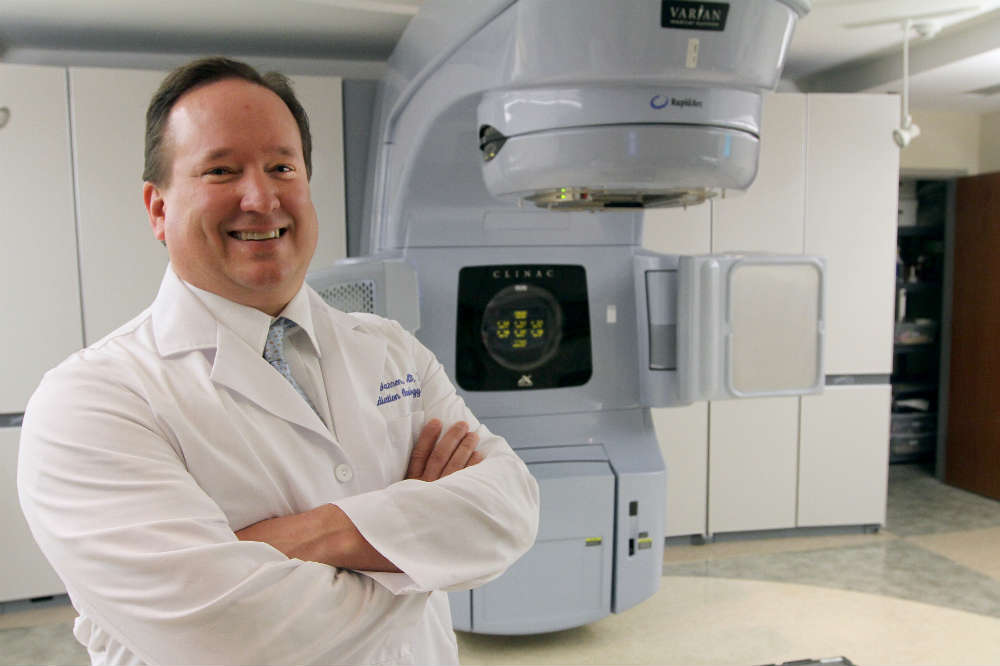Latest surgeon general’s report a wakeup call about smoking cessation
February 3, 2020
Dr. Graham Warren was a contributing author to the 2020 surgeon general’s report on smoking cessation and a member of Hollings Cancer Center’s Cancer Control Research Program.
Quitting smoking can be tough, but the benefits make it well worth the effort.
That’s a key takeaway from the surgeon general’s 2020 report released last week that leading smoking cessation experts at Hollings Cancer Center at the Medical University of South Carolina want the public to know. The researchers, Michael Cummings, Ph.D., and oncologist Graham Warren, M.D., Ph.D., both contributed to the 700-page report that included 100 chapters.
This 34th report on tobacco was the first in 30 years to focus on smoking cessation. It details the latest science on comprehensive interventions, health benefits of quitting smoking and populations who disproportionately face the burdens of tobacco use. Warren said that information can motivate health care providers to identify gaps in care and better target interventions and treatments that have been shown to be effective.
The need is obvious. According to the report, smoking cessation reduces the risk of premature death and can add as much as a decade to life expectancy. Smoking harms nearly every organ in the body and costs the United States billions of dollars in direct medical costs each year.
Cummings, an international expert in tobacco cessation, who served as a contributing editor to the report, said many people fail to realize smoking cessation is one of the most effective things that they can do to improve their health, even if they already have cancer.
“We know that one of two long-term smokers are destined to die prematurely from smoking; if you just take the deaths, which are estimated to be about half a million Americans this year, and multiply that by 30, that’s the number of people alive in the United States this year with a serious smoking-related disease.”
Warren, who was a contributing author to the report, said it puts a renewed emphasis on the value of smoking cessation to a person’s health. Not only does quitting smoking improve survival rates when patients quit smoking after a cancer diagnosis, but it also lowers the risk of developing 12 types of cancer. Quitting smoking also improved outcomes for patients with heart disease, improved lung function in patients with chronic obstructive pulmonary disease (COPD) and lowered the risk for several other health outcomes.
And, quitting smoking is not just about preventing future diseases, such as cancer, it also affects the effectiveness of ongoing treatments. Warren said that for cancer patients who smoke, there could be more complications from surgery, reduced efficacy of chemotherapy and radiotherapy, increased risks of developing a second primary tumor or cancer recurrence and a possible increase in side effects from treatment.
Warren and colleagues recently reported a significant increase in cancer-related costs associated with continued smoking, owing to the need for further medical treatments. The bottom line is smoking adds substantial health care costs, even after a cancer diagnosis.
As an oncologist, Warren witnesses firsthand the triumphs cancer patients feel when they recover, but he also feels their devastation if the disease reoccurs. “We know smoking increases the risk of the cancer coming back. It also increases the chance that patients may die from something else, lung disease, heart disease, stroke or otherwise. When you see a patient succeed with their first cancer treatment, but they keep smoking and the cancer recurs, it is devastating to the patient, and it’s a horrible feeling to see that. Smoking cessation, even after a cancer diagnosis, can improve survival and improve many other health outcomes for our patients.”




















